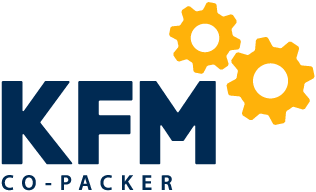Smart labels are a new concept that’s being introduced to the world of pharmaceuticals, and it’s something that it’s worth considering for your products.
A recent article for European Pharmaceutical Manufacturer explained what smart labels are and why they could benefit pharmaceutical firms.
Smart labels essentially make use of radio-frequency identification (RFID) and e-paper technology. Some also include temperature sensors or tamper-evident features. This brings with it a number of advantages from the perspective of supply chain management.
Managing director at Faubel Frank Jäger told the news provider that “the accessible data flow provided by smart labels leads to greater transparency”. Although RFID tags and temperature sensors are used in some circumstances, he added that they typically only take one part of the supply chain into account.
However, there are opportunities to make improvements across many areas of the supply chain if smart labels are introduced effectively, with a more holistic approach to their use.
Firstly, there’s the benefit for inventory management. If pharmaceutical products are labelled with RFID tags, the data they hold can easily be fed into inventory management platforms. This means that it becomes much easier to manage the delicate balance between shortage and surplus for organisations that order medication, or indeed those that produce it.
It also makes it much easier for anyone to check the quality management data, as all of this can also be stored in the smart label.
And, of course, all of this data is fed into systems in real time, meaning that it’s possible for manufacturers, supply chain managers and healthcare organisations to have a clear view of their stock levels of any medication, at any time.
Once the medication is shipped, using this kind of technology makes it much easier for wholesalers, pharmacists and even patients to know that they are receiving the right medication.
What’s more, should any medicine be stolen, it is easy for people to check which batch it came from and subsequently identify it as such. Smart labels can also be used to ensure that the original drugs can’t be removed from their packaging and replaced with counterfeits without anyone noticing further down the chain, Mr Jäger added.
Smart labels can also eliminate the need for relabelling products if something changes, such as their stability data. It’s much more cost-effective and quicker to be able to update this information on a central computer system than to have to reprint whole batches of labels.
This isn’t the only change that could be coming down the line for pharmaceutical firms. A recent article for Pharmaceutical Journal revealed that the European parliament and Organisation for Economic Co-operation and Development (OECD) are considering including environmental risk to the patient-benefit analysis of new medicines.
According to Jason Snape, senior principal environmental scientist at AstraZeneca, this could be “catastrophic” for the sector, as environmental impact assessments aren’t currently carried out until Phase III trials, by which point the drug developer has spent hundreds of millions on the development of that medicine.
Looking for pharmaceutical validation services? Get in touch with our experts today.

